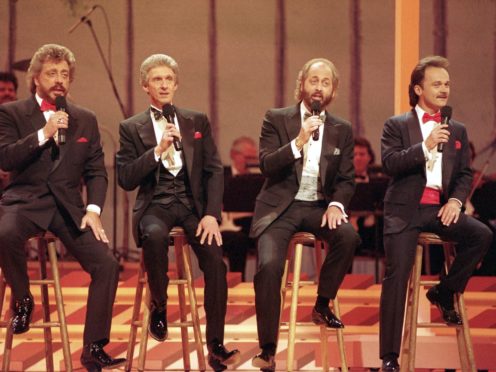Harold Reid, who sang bass for the Grammy-winning country group The Statler Brothers, has died at the age of 80 after a long battle with kidney failure.
Reid died in his home town of Staunton, Virginia, on Friday, his nephew, Debo Reid, said.
The Statler Brothers often sang backing vocals for country star Johnny Cash. Some of their biggest hits included 1965’s Flowers On The Wall and 1970′s Bed Of Roses.
Harold Reid was a member of the Country Music Hall of Fame and the Gospel Music Hall of Fame. He was also a comedian.
“He is and will always be loved by his family, friends and millions of fans,” a statement on the band’s website said. “His singing, his songwriting and his comedy made generations happy. He has taken a piece of our hearts with him.”

Reid and three boyhood friends – Lew DeWitt, Phil Balsley and Joe McDorman – formed the Four-Star Quartet in 1948. The group, later known as the Kingsmen, sang mostly gospel music. McDorman quit and was replaced by Don Reid, Harold’s younger brother.
DeWitt once said the group changed their name again because several other acts – all better known – were billed as the Kingsmen. The new name came from a box of Statler tissue, he said.
The quartet switched to country music in 1964, after meeting Cash and joining his road show.
Over the next two decades, the Statlers won three Grammy Awards and were named top vocal group nine times by the Country Music Association.
Debo Reid said of his uncle: “He leaves a large and loving family and millions of fans who remember his stage and TV antics with smiles and cherish his music that will live with the ages.”
